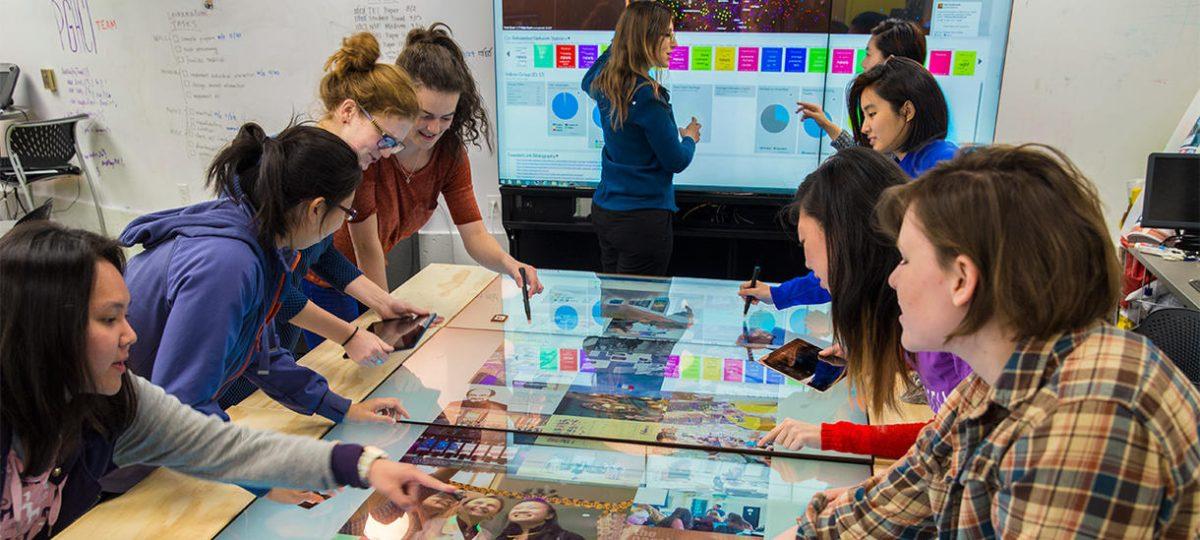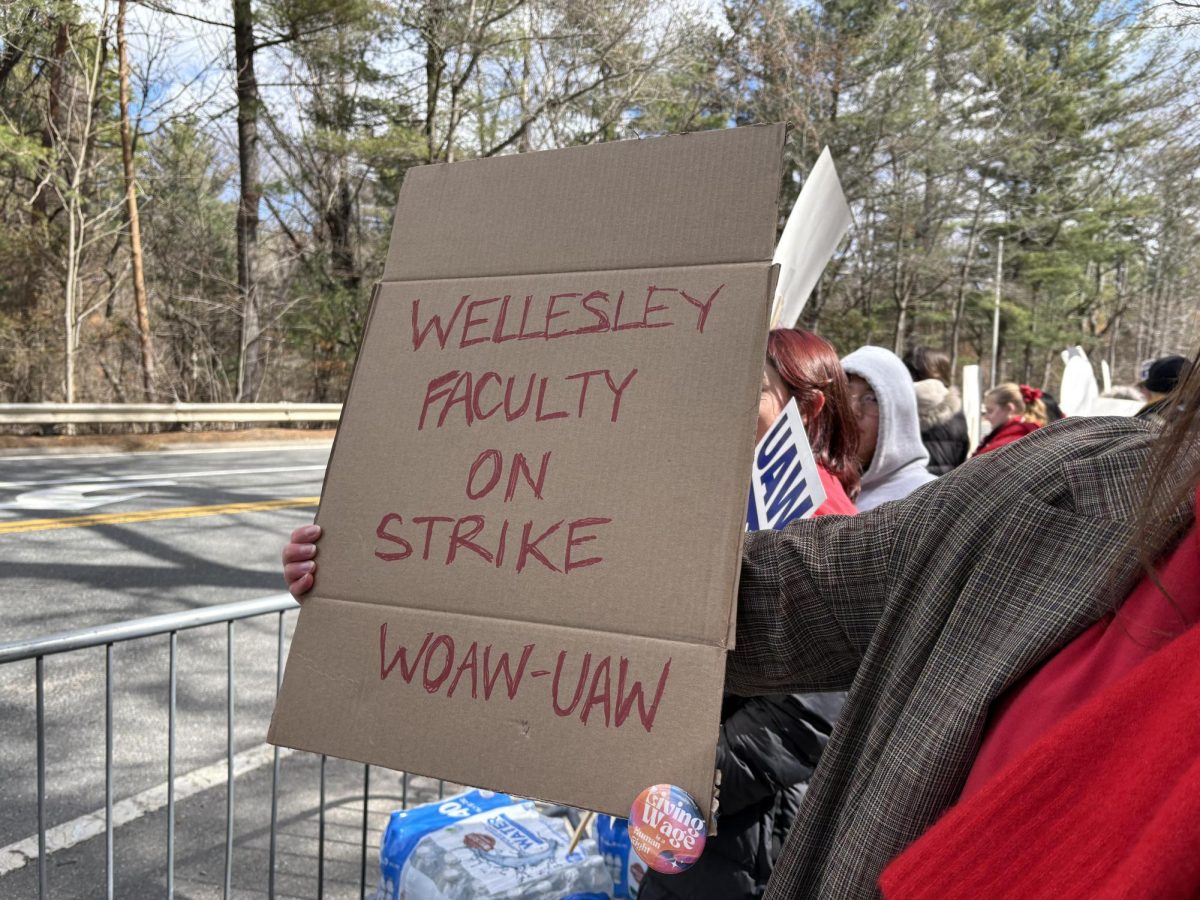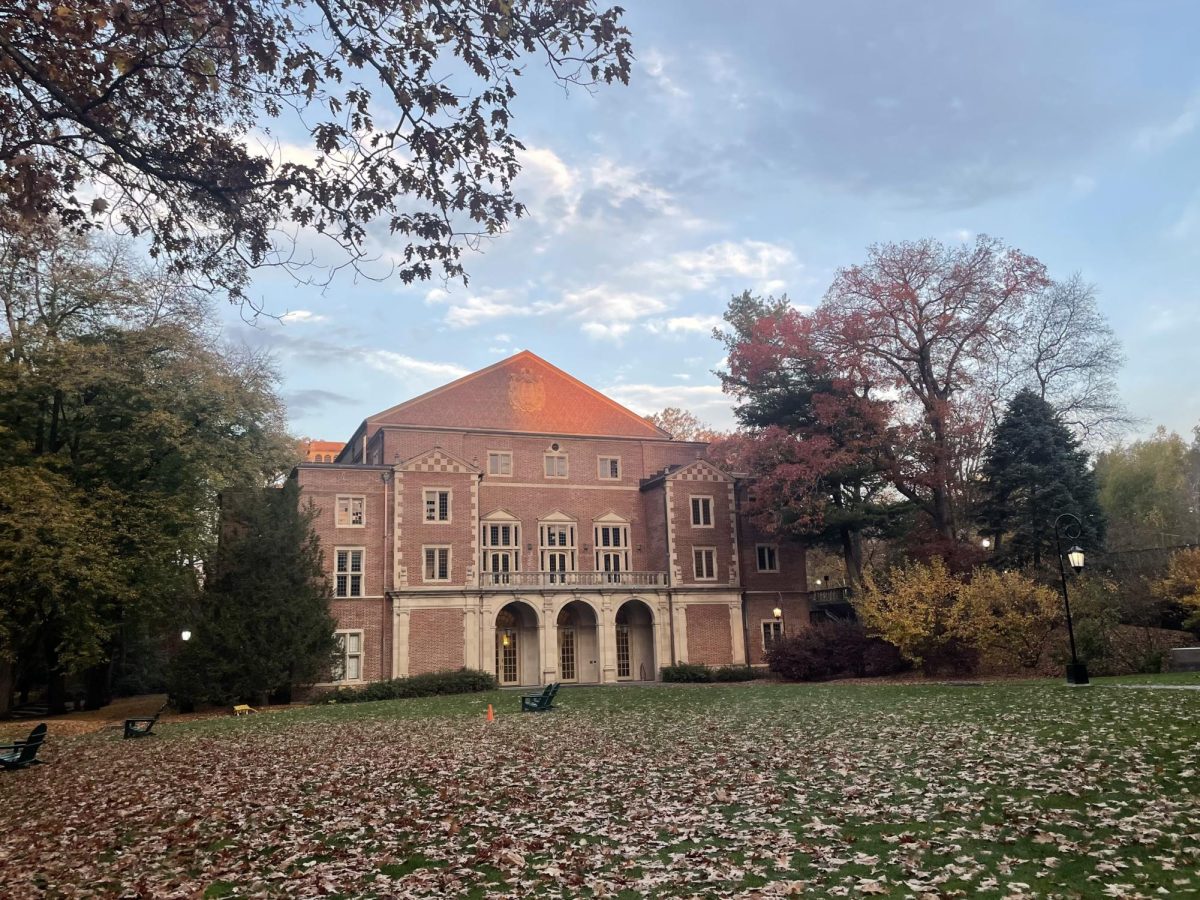After a hiring process that began in Aug. 2022, the Wellesley College computer science department has hired three new assistant professors: Vinitha Gadiraju and Alexa VanHattum, who will join the department in 2023, and Yaniv Yakoby, who will join the department in 2024.
The number of computing-related majors at Wellesley is on the rise, as is student interest in introductory and advanced classes. The computer science department has also lost a significant number of faculty members. Professor Orit Shaer is the chair of the computer science department at Wellesley, and offered some insight into the computer science department.
“In the last couple of years the department has lost five faculty members due to retirements and to faculty leaving to pursue other opportunities closer to family or in research institutions,” she said.
Wellesley is not unique in the rising demand for new professors.
“The number of faculty searches in computer science during this hiring season for tenure-track positions is at a nine-years high for undergraduate institutions,” Shaer noted.
The hiring process is further complicated by the fact that most tenure-track positions have a similar hiring timeline, so the department expected that each of their candidates would have multiple other offers.
The hiring process involved several rounds of interviews, student involvement and feedback. After a round of Zoom interviews, the department invited eight outstanding candidates to Wellesley for a two-day on-campus interview.
On campus, the candidates spoke with students and faculty, the Dean of Faculty and the Associate Provost for Equity & Inclusion. Each candidate also presented on their research, and these talks were open to — and very well attended by — the Wellesley community. These talks were just one way that the greater Wellesley community was involved in the hiring process.
Student participation was a large part of the process. Each candidate attended a students-only meeting, a campus tour and a dinner with both faculty and students, and two HHMI (Howard Hughes Medical Institute) Inclusive Excellence interns were hired to support students and ensure an inclusive hiring process.
While student participation is not a unique facet of the hiring process, Shaer pointed out that many candidates were pleasantly surprised at the amount of student involvement, and that student feedback was considered carefully during the decision-making process.
The department looked for candidates who specialized in privacy, security, systems, machine learning and the social and ethical implications of computer science for individuals, communities and the greater world. In regards to the qualities that the hiring committee looked for in the process, the most important were a passion for teaching students from diverse backgrounds and an ability to teach students with varying levels of experience.
“The most important element that we were looking at for new candidates is their commitment to the Wellesley vision of inclusive excellence,” Shaer said.
Wellesley’s liberal arts environment also presents a unique set of opportunities for teaching the next generation of computer scientists. Shaer emphasized that Wellesley students are engaged in the classroom, in research and in critical thinking about the greater ethical implications of computer science, and that this influenced the kind of faculty the department was looking for.
The need for new professors continues to be a widespread issue. Only 32% of new computer science PhD recipients in 2022 are employed by academia, and most graduating PhD students are employed by industry and government. Shaer explained why this may occur:
“In computing you can make a significant impact through products that reach a large number of people, so industry is very compelling. You can also come and train the next generation of computer scientists,” she said.
While there is not a standard path in the computer science field from industry/research to academia or vice versa, at many large institutions professors have worked for years in industry and later come to teach. However, this is not often the case at Wellesley. For Wellesley students, it is more common for students to graduate and work from one to three years in industry before working towards a graduate degree. They can gain more field experience and may be able to further understand their career goals before pursuing a more advanced degree. After attaining a graduate degree, many students will then go on to either academia or further industry work.
Because industry work is more lucrative, faculty searches are made more competitive between institutions. In 2022, only 54% of the BS/BA institutions with available tenure track positions in computer science were successful in hiring faculty members. Thus, the interview process goes both ways in some senses.
“We are both interviewing them and showcasing Wellesley at the same time. We are interviewing [the candidates] to make sure they are a good fit for our culture and for supporting our students, but at the same time we are showcasing what Wellesley would have to offer for them for a meaningful career,” Shaer said.
As for the future of computer science at Wellesley, Shaer acknowledged that in recent years, long waiting lists for introductory classes have plagued the department. She said that these new professors will help alleviate the departmental stress and crowded classes, and hopefully many of the long waiting list issues, but that hiring is only a part of the process.
Another way that the department is working through this stress is by rethinking the admissions process for introductory computer science courses. Creating new independent sections of introductory courses that offer the class independent of the lab will separate students with computer science backgrounds from students without. The hope is that introductory classes will be less intimidating and give more students opportunities to be introduced to the field.
Shaer said she is excited about the possibilities for new and exciting courses and the new approaches that each applicant will bring to teaching and mentoring students. She also noted that the biggest challenge facing the department at Wellesley is to make computing a more welcoming and inclusive field for all Wellesley students. While intentional hiring processes are an integral part of accomplishing this goal, rethinking how to teach and mentor each and every student as effectively as possible is also incredibly important. While she emphasizes that this goal has not been achieved, she is also optimistic that everyone in the department shares this common commitment and is ready and willing to dive in and do the work that needs to be done.
Shaer concluded: “Many students have been wanting to engage in computer science and have been tackling our very long waiting lists. So I think sending the message that we hear you, we see you, we want to make computing more inclusive, and we work on different fronts, and hiring is just one of them, to make sure more students — and any students that are interested — will be able to feel welcome and included in computing at Wellesley.”




